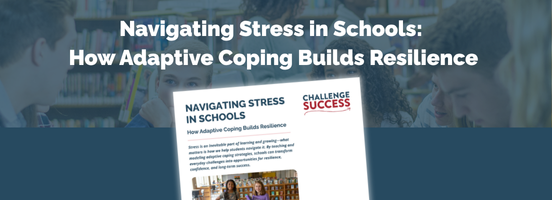I hate homework. I hate reminding my kids to do their homework. I hate reviewing their homework. And most of all, I hate helping them with their homework.
So I don’t.
I don’t help them with it. I tell them to do it, but I don’t really care if they do or not. They don’t know that. They think I want them to do it. But they’ve just had a long day at school – longer than my school days ever were – and there is usually at least one after-school activity for some of them (ballet, karate, Hebrew lesson, occupational therapy, soccer practice). By the time they’re home it’s after 5pm, or even after 7pm. They’ve scarfed down snacks in the car, and been told where to be, what to do, and how to do it since 8.30am or earlier. So really, does it matter to me if they do a page of long division or translate 20 Spanish words at 8pm? No.
I’ve never told them how I feel about them doing – or rather, not doing – their homework. Because I feel a little guilty about my distant approach. Guilty that I don’t sit next to my daughter while she works through her fractions (yes, fractions… in second grade!). Guilty that I am not available to my fourth grader while he researches dingoes on the Internet. She learnt how to do the fractions in class, so she’ll figure it out, I suppose. And if she doesn’t know, her teacher will show her again. As for the Internet research, what ten-year-old doesn’t know how to surf the web?
But even with my brave attitude I feel neglectful, leaving them to fend for themselves in the competitive academic jungle of high achievers and perfect scores. Are my children going to be left with the scraps because I don’t help them with every math problem, quiz them on every spelling word, ensure that each assignment is not only complete but is the best it can possibly be?
Turns out, probably not!
I recently heard Denise Pope from Challenge Success speak in my community. Her presentation was aptly called “Making Homework Work.” Denise believes that the three most important things children should learn at elementary school are how to get along with others, how to read, and some numeracy. In fact, she doesn’t just believe it – she has researched and studied it, both on paper and in real life.
Homework is stressful – for students, for teachers, and for parents. And for elementary school students there is no proven correlation between homework and higher academic achievement, except for reading.
With our culture and our nation’s emphasis on high academic achievement, the perception that in order to get into college kids need straight As and perfect test scores, increased course work and more complex curricula, teachers are feeling the pressure to cover more material, and to prepare kids for the next grade. There are just so many hours in the school day, even with fewer recesses and shortened lunch times than we had when we were kids. So, more homework.
Our kids are stressed because they already have a full day of learning, on campus. They are mostly doing their best, being cooperative, living their school-age lives of friends, and words, and numbers, and rules, and four-square, and be quiet in the library, and string or percussion, and you can’t say you can’t play, and the topography of California, and no running in the hallway. And they get to go do some of that again on the baseball field after school, or at their piano lesson, or OT. And once they’re home, they get to chill for maybe 30 minutes before they tackle their homework – and is it an engaging assignment, an authentic project, or just something that needs to be completed by tomorrow? Because if there is too much homework, and it feels “stupid” and irrelevant, the kids quickly burn out and disengage.
And we the parents are stressed because we want our kids to succeed, and to feel successful. We don’t want them to be left behind, but we also don’t want them to feel overwhelmed. Because they are only seven, or 11, or 16. And they have their whole lives ahead of them.
I have had conversations with fellow moms and felt that my kids are not only in a different classroom, but that they are not even at the same school, because I have only a peripheral interest in their homework. The Mission project is due when? They’re learning which math fact this week?
Turns out, my hands-off approach is not neglectful. It’s even encouraged! Our role as parents is not to help our kids with their homework. Homework is between the teacher and the student – we are not doing homework. Ethan is doing his homework. And Isabel has a project due on Friday. Our role is not to review and correct their work as they do it – this negates the opportunity for learning. Let them misspell. It’s okay if they answer with incomplete sentences. The teacher will correct their math and show them how it should be done. Trust the teachers. And trust your kids.
Our job is to help them manage their time. To make sure they get plenty of sleep. Healthy food. Play time. Down time. Family time. Challenge Success calls it PDF – it’s easy to remember. Missing the first two days of school after winter break is okay for my future eighth grader – he will be at a family wedding, with uncles and grandparents, and extended family, and that event and those memories will be far more important in his hopefully long life than the algebra he won’t be learning those days. In the big picture.
As Denise says: kiss your children. Love them unconditionally. Read to them. Have them read to you. Put them to bed.
Bed time trumps homework. Always.
